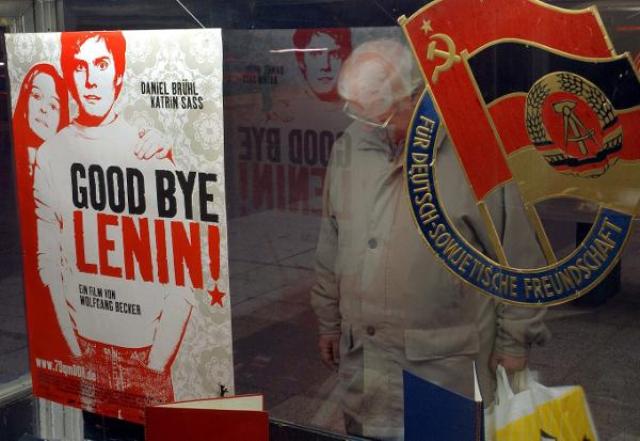Source

Source: picture-alliance / dpa (c) dpa-Bildarchiv
Whereas West German glimpses at the “exotic” East were predominant in film in the early 1990s, East German and all-German perspectives began to play an increasingly important role towards the end of the decade. The memory of the GDR and the Western view of the East were called into question by the satire Heroes Like Us [Helden wie wir] (1999), which was based on the novel by East German author Thomas Brussig, as well as the much more successful comedy Sonnenallee (1999) – in which Brussig also had a hand, this time as screenwriter. The movie Good Bye, Lenin! (2003) was a spectacular success. More than 6.4 million moviegoers saw the film in Germany in 2003, and it went on to be marketed in 65 countries. A tragicomedy, Good Bye, Lenin! tells the story of the Kerners, an East German family. The plot in a nutshell: after the father flees the GDR for the West, the mother is left to raise both of her children alone and becomes a committed citizen of communist East Germany. During the protests on October 7, 1989, she has a heart attack and falls into a coma. When she wakes up months later, her son shields her from any and all information regarding the political change so as not to endanger her health. Within the confines of the family’s apartment, he maintains the illusion that the GDR still exists as it once was.
In this photo: On February 26, 2003, a passerby glances at a display in the window of the "Kino International" ["Cinema International"] on Berlin’s Karl-Marx-Allee, where Good Bye, Lenin! was showing. Next to the film poster, to the right, is the emblem of the Society for German-Soviet Friendship.

Source: picture-alliance / dpa (c) dpa-Bildarchiv